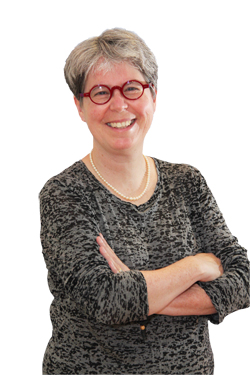
Michelle Francl-Donnay is a wife, mother of two, professor of chemistry, writer and blogger (see Quantum Theology). She is a member of Our Mother of Good Counsel Parish in Bryn Mawr.
When I was in high school, I spent a memorable Christmas at my grandfather’s house outside of Oaxaca, a mile high in the mountains of Mexico. It was a long trip, more than a week’s travel time in all, perhaps as long as might have taken Joseph and Mary to traverse the 70 miles between Nazareth and Bethlehem.
My mother was not pregnant, but she was encumbered with six children, the youngest of whom was only 4. No donkeys either. We took the train to Mexico City — the lot of us crammed into three compartments for two nights, the conductor proudly announcing he had found seating for “¡ocho!” in the dining car at each meal — then drove a wheezy rented van through the mountains to Oaxaca. I don’t imagine it was an easy journey for my parents, despite the joys to be had when we finally arrived.
Raised on snowy small-town Midwest Christmases, just the chance to go to midnight Mass at Oaxaca’s cathedral on a warm Christmas Eve made this trip memorable, to say nothing of the elaborate nativity scenes carved from radishes set out on display in the town square the night before. But what I cherished most was the chance to join the Las Posadas celebration in a small town near where my grandfather lived.
We went in procession — an overexcited, overtired and oversugared mob of children following the altar boys with their tall pillars of wax and the statues of Mary and Joseph from house to house asking if there was room for the Holy Family there. Over and over we were turned down, until we reached the last house for the night and were welcomed into the light and warmth. I can remember being hungry and uncertain; like Mary and Joseph I didn’t know where we would finally end up.
I haven’t been back to Oaxaca since that winter, but that uncertain experience of walking the dusty, narrow and unfamiliar streets — and the warm generosity of the family that finally said, “yes” and opened its doors wide to the neighborhood — overlays every nativity scene I see with the question: do I have room?
Months from now, we will follow Christ again, through the streets of Jerusalem in his Passion. That will be a difficult path to tread to be sure, but I wonder if this journey doesn’t challenge me more. Do I have room for Christ? Not just in the well-publicized moments of trial, but when I am suddenly interrupted by a knock at the door. When the everyday needs of my brothers and sisters present themselves. Inconveniently. Awkwardly.
Dorothy Day writes that we ought to be alert to these opportunities. Not because those who knock remind us of Joseph and Mary’s — and Jesus’ — need that night. Not because this might, by some miracle, be Jesus at the door. But because those who come to us in need “are Christ, asking us to find room for him, exactly as He did at that first Christmas.”
Christ was born. He is risen. He is with us until the end of time. Will I give Him room?
PREVIOUS: An average young man, an uncommonly good soul
NEXT: The fall, and the raising, of the human race



Share this story